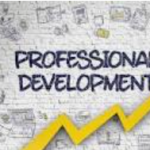Teachers rank adequate opportunities for professional development as a reason for job satisfaction. Most of us, I bet, have experienced PDs that transformed our practice forever. As often as that, I bet, we’ve experienced mandatory PDs that numbed the mind, disanimated the spirit, and weakened the body.
Much of my most valuable professional development came out of nowhere, was free, and lasted minutes – or even seconds. All I had to do is pay attention.
Here are some of my favorites.
Parents know best. That student of yours who’s really bright and fun and larger than life? I have him, too. I noticed that his grades had been falling, and his behavior was distracting other students. He was also showing some attitude. I ran into his mom, who was helping at the school. She’s bright and fun, too. I expressed my concerns. She laughed and told me another teacher had just told her the same thing. I asked if she had any suggestions. She laughed again, and said, “You guys have to stop telling him how smart he is. He doesn’t think he has to work.” Hmmmm. It turned out to be that easy. A little less praise and tighter boundaries on behavior turned him around. Thanks, Mom, you made me a better teacher.
I had to hear it first hand. A while back we had a student suffering from bipolar disorder. In a meeting with her adopted mother we all spoke of our concerns. The mother was doing everything medical professionals and social workers recommended. Yet the daughter was intransigent – wouldn’t take her medicine because they made her gain weight. The teachers left, and the mother stayed to talk some more with the school psychologist and social worker. I had forgot to mention something and came back. The mother was explaining what went on at home. It was highly personal and I asked if I should leave, but the mom said no.
The stories that followed transported me to a place I could little imagine. The knife and threat to carve, “My Mother’s a B****” into her stomach. The picture on the girl’s phone of her in a motel with a man. The temporary hospitalizations. The refusals by agencies to admit the child long term.
All my career I’ve heard and comprehended that some of our kids’ and parents’ lives are nightmares. But never had I heard an unfiltered first-person account of the terror of mental illness on their lives.
What’s your missing piece? After we completed our most recent projects, I had students complete a short reflection. The capstone question was, “What piece is missing from your puzzle?” One learning-disabled student answered: “My missing piece is that all people do is tell me what I get wrong.” I prompted, “And you want to know what you’re doing right?” “Yeah, that’s all.” The next day he showed me the first part of his next project. Ignoring some minor errors I pointed out a couple of creative points he had made. I asked him if he needed help on the next part, “Nah, I got this.” Yeah, that’s all it took.
Watch your words, you don’t know who’s listening (and you may end up with a lump in the throat). Last Thursday at the end of class, two kids were getting after each other. It got to the “He started it!” “No, he started it!” point. It wasn’t really too bad and all I said was, “Why can’t anybody ever start the peace instead of the fight?” The bell rang and I forgot about it. The next day a girl in the class, who hadn’t been in the mini-conflict called me over. She gave me a poster she had made, “Start the Peace, Not the Fight.” It’s the picture accompanying this post.
Yes, adequate opportunities for professional development are one reason for my job satisfaction. I wonder what I’ll learn tomorrow.









